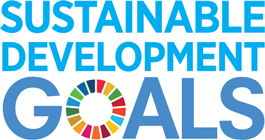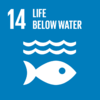How can we accelerate progress on Goal 14 Life Below Water?
Summary of Discussion
What about action? How can we accelerate action, mobilize consumers, governments and businesses, and scale up solutions?
- International movement – hold governments accountable, demand progress and delivery
- Continue the dialogue around oceans to keep them on the agenda
- Educate and communicate with consumers – giving them the chance to participate helps them think more deeply about their role
- Partnerships with government (the critical actors!) – their buy in is crucial
- Transparency in data is important for tackling illegal fishing and verifying sustainable fisheries
- Businesses need to lead the way in setting goals and building partnerships in a pre-competitive fashion
- Make incentives clear – personal, social, corporate and international benefits should be leveraged for engagement
What is the potential for labelling and standards organisations to contribute to solving some of the challenges talked about? Should the bar be raised or lowered in order to help achieve the SDG14 goals in time?
- Independent sources/certifications are key to overcoming trust deficiencies and transparency gaps
- Implementing robust supply chain standards
- Labelling/standards are a start but there are more ways to improve environmental and social performance
- Standards play a great role in putting pressure on government
- Progress over perfection with regards to standards organisations
- Educational – help consumers understand what ‘sustainable labels’ stand for, and identify sustainable options
- Credible standards which develop to reflect modern scientific research
- Transition points should be accepted amongst fisheries to allow for steady progress, and limit disengagement from those unable to 'reach nirvana'
What are the different challenges these fishing practices present? Which one do you think is more sustainable?
- All fisheries should be operating sustainably, regardless of size
- Sustainability is not necessarily in correlation to fishing method – it is more dependent on management and policies
- Both must be sustainably managed and as a continuum
- Responsibility, practices and management are more critical than the size of the fishery
- Small-scale fisheries pose the issue of greater dispersion, and contextual management
- Both can be sustainable or unsustainable, dependent on their priority (food production vs. livelihood maintenance)
- The burden of compliance with regulations cannot be the same for small-scale fisheries and large-scale fisheries – solutions should be different, and dependent on scale
Who should be doing what? What can different stakeholders, organisations or individuals contribute?
- RMFOs (Regional fisheries management organisations) – implement harvest control rules
- Consumers demanding sustainable seafood choices
- The market committing to sustainable sourcing
- Businesses working with sustainable companies and taking a leadership role
- Support for governments/countries with high levels of illegal fishing, and ineffective fisheries monitoring
- Nomad – ensuring that anything in the supply chain is sustainably sourced
- Greater conversation amongst governments to incorporate fisheries in the context of rural development
- NGOs working in a precompetitive and collaborative manner
- Fishermen should be involved to ensure that their interests (e.g. livelihood) is considered in the discussion
- Collaboration! (fishers, scientists, consumers etc.)
- Organisations should demonstrate leadership
- Retailer and manufacturers must take on a greater responsibility for endorsing sustainable seafood products
Which initiatives are making the most impact? What else could we be doing that we are not already doing?
- Global initiatives – Paris Agreement on Climate Change, Port State Measures
- Collective efforts – small-scale fisheries guidelines, Blue Growth, Fishery Improvement Projects
- Policy reform – real enforcement, monitoring and control
- Raising awareness (greater role for NGOs and market based programmes)
- More labelling on products to help shortcut’ sustainable choices for consumers
- Partnerships and multi-stakeholder initiatives that bring together a range of actors
- Greater focus on moving away from plastic packaging
- Cross-cutting SDG goals (e.g. SDG 17 - partnerships for goals)
- Need stronger engagement from governments
- Solutions are known but movement towards them is slow
- NGO alignment on issues
What have been the barriers holding up progress, particularly on the topic of healthy and productive oceans?
- National economic growth – country’s become wealthier and develop in areas of health, nutrition, poverty and education, while ocean issues are less of a priority
- Collective transboundary action is needed
- Political empowerment at the country level
- Long term sustainable goals should be prioritised over short term gains
- Ocean health is taken for granted
- Lack of consumer awareness limits the demand for change
- Competition amongst fisheries
- Tragedy of the commons – only internationally coordinated collaboration from various actors can effectively address all the issues
- Lack of data
- Issue appears to be 'further away', and therefore less urgent
- The nature of ocean science is complex, making it difficult to develop/decide action
- Access to resources
Climate change, pollution and overfishing - which of these three big issues is the most important to address?
- Climate change is the top issue – rising sea levels, warming seas, loss of warm water tropical reefs, impact of fishery reproductive health, migration, impacts of acidification, extreme weather, global warming impact, impacts of disrupted ocean circulation, migration of fish stocks
- Interrelated – what issues have a direct impact now and what are the actions to take to achieve a sustainable solution for all
- All three (unholy trinity!) – climate change for the planet and society, overfishing and pollution (working in parallel) to make the biggest difference.
- Climate change to be addressed on a global scale, while overfishing and pollution can be tackled locally
- Address them all using a multifaceted approach global, national and local levels)
- Most important issue will depend on audience – e.g. professionals are most concerned with climate change/overfishing, consumers more concerned with pollution
Meet our Special Guests
Directorate of Fisheries
Nomad Foods
Global Fishing Watch
GlobeScan
Avalerion Capital
MSC
Marine Stewardship Council
McDonald's Corporation
Thai Union
Espersen
Nomad Foods
Session Moderator
United Kingdom




Posts
Back to Top